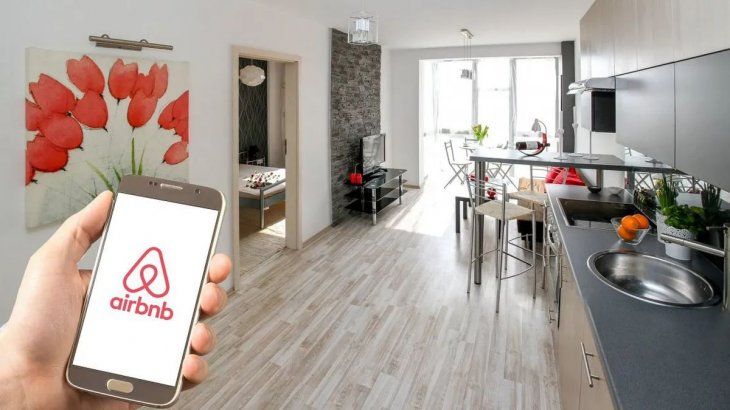Portugal is one of the poorest countries in Western Europe. More than 50% of workers earned less than 1,000 euros a month last year, while rents and house prices have risen sharply. Only in Lisbon, rents shot up 37% in 2022.
The low wages, A hot property market, policies that encourage wealthy foreigners to invest and an economy dependent on tourism have made it difficult for Portuguese people to rent and buy for years, according to housing advocacy groups. The inflation rate in Portugal, at 8.3%, has aggravated the problem.
The first Minister, Antonio Costastated at a press conference that the crisis now affects all families, Not just the most vulnerable. It is unclear when the measures, worth at least 900 million euros ($962.19 million), will take effect. Costa said that some will be approved next month and others will be voted on by parliamentarians.
airbnb.jpg
The measures that Portugal took against temporary rental
- A mechanism to regulate rent increases will be introduced, he added, and the government will offer tax incentives to owners who convert tourist homes into rental houses for the local population.
- New licenses for tourist accommodation, such as Airbnb, will be banned, except in less populated rural areas.
- To address the housing shortage, Costa said the state will rent the vacant homes directly to the owners for a period of five years and put them on the rental market.
- Portugal’s “golden visa” program, which offers European Union passports to non-EU citizens in exchange for investment, including real estate, and which has been criticized for driving up house prices and rents, is coming to an end said Costa.
The program has attracted investments worth €6.8 billion since its launch in 2012, most of which has gone to the real estate sector.
Housing groups said the measures would mean little if the government continued to push other policies to attract wealthy foreigners, such as the “digital nomad visa”. introduced in October, which gives foreigners with high monthly income from remote work the possibility to live and work from Portugal without paying local taxes.
airbnb.jpg

Airbnb is already listed on the Nasdaq.
In Argentina they ask to regulate the temporary rental
In Argentina, the supply of apartments in temporary rental sites grows year after year and there is concern about the risk that it will become a trend with negative effects for those who need to rent a home in the medium or long term.
According to data from AirDNA, that combines the offer of the AirBnB and Expedia platforms, lhe City of Buenos Aires led the local ranking in 2022 with more than 12,000 temporary tourist accommodations, of which only 299 are registered. It was followed by Mendoza, with more than 1,900 properties on offer and 158 registered, and Tierra del Fuego, where 760 options are offered, of which only 200 are registered. Below is the city of Salta, with 750 accommodations and 303 registered, and in El Calafate, where there are 403 offers and only 68 units are registered.
Manuel Socías, Buenos Aires legislator of the Frente de Todos (FDT), questioned the temporary accommodation platforms of homes for tourism purposes because “they are dollarizing the rental market” of permanent residences in the City of Buenos Aires.
“We need to do something with Airbnb before it becomes impossible to rent in Argentina. What temporary rental platforms have positively for tourism contrasts with their ability to negatively modify the life of cities and their inhabitants,” considered the legislator through a publication on networks.
“The vertiginous irruption of temporary accommodation platforms carries the risk of removing part of the housing stock available for residential rental from the market and, even, of the production of new homes,” he added.
At the same time, he considered that the change in the real estate sector “also has a strong impact on prices” since it “dollarizes the expectations of permanent residential rentals that become impossible to pay even for the middle sectors.”
In this regard, and in radio statements, Socías explained that currently for owners “it is much more profitable to turn a property over to the temporary tourist rental market than to permanent residential rentals.”
And he gave as an example what happens in the microcenter of Buenos Aireswhere dozens of properties are empty after the pandemic, specifying that “it is being converted very quickly into an offer for tourist rentals.”
“However, the worst thing that can be done is to shake up regulations without any impact and only to silence the claim of certain sectors, as the City of Buenos Aires did,” he added.
Finally, he urged the creation of “a multi-party and multi-stakeholder work group to think of new tools that take advantage of the potential of international tourism without making renting a home in the City a nightmare.”
Source: Ambito




